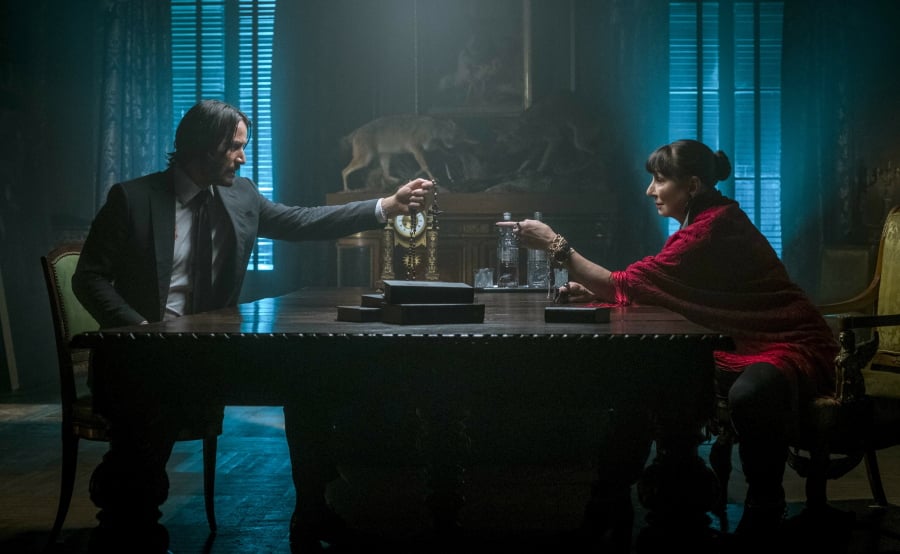John Wick (Keanu Reeves) is something out of a fairy tale. Literally: He is referred to as “baba yaga” or boogeyman. When his exploits are whispered of, the stories are both ridiculous yet seemingly plausible — killing three men with a pencil in a bar sounds absurd at first, but when you consider the possibilities that a small sharpened implement offers for harm, is it that crazy?
The simplicity of Wick’s story — he seeks vengeance against those who stole his car and killed his dog, which was a gift from his dead wife — combined with his skill with guns and knives (and writing implements) foreground his legend. However, in the background of the “John Wick” films, writer Derek Kolstad and director Chad Stahelski have crafted a world of mythical references and religious symbolism that suggest Wick harkens to a line of legends and folk heroes. His is the latest face of the monomyth. And the charmingly goofy Keanu Reeves, whose accidental virality on social media has turned him into a different sort of legend, is the perfect actor to portray him.
Much has been made of the world-building in “John Wick” and its sequels. There are the gold coins the assassins trade with each other, which represent not fiscal but social currency, favors made solid. There’s the chain of Continental hotels, on the grounds of which no “business” (i.e., murder) can be conducted, and the High Table, a collection of the heads of the major crime syndicates. Wick’s world has been salted with other symbols, however: older, more primal notions.
His wife was Helen (Bridget Moynahan), whose best-known namesake launched a thousand ships. Note that the concierge of the New York Continental is named Charon (Lance Reddick), who students of mythology will recognize as the ferryman for the River Styx, the guide between the worlds of the living and the damned. The mute murderess in “John Wick: Chapter 2” is Ares (Ruby Rose), the Greek god of war who backed the wrong side in the conflict over Helen. The name of Sofia (Halle Berry), who helps Wick learn the path to the man above the High Table in “John Wick: Chapter 3 — Parabellum,” derives from “wisdom” in ancient Greek.



